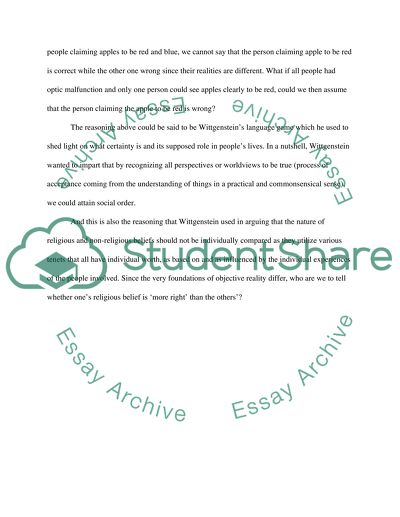Wittgenstein: Language Games and Religion in Wittgenstein's Mirror Essay. Retrieved from https://studentshare.org/philosophy/1465000-wittgenstein-language-games-and-religion-in
Wittgenstein: Language Games and Religion in Wittgenstein'S Mirror Essay. https://studentshare.org/philosophy/1465000-wittgenstein-language-games-and-religion-in.


